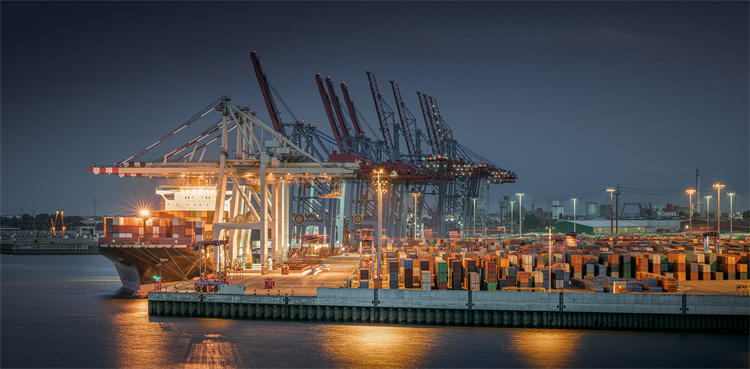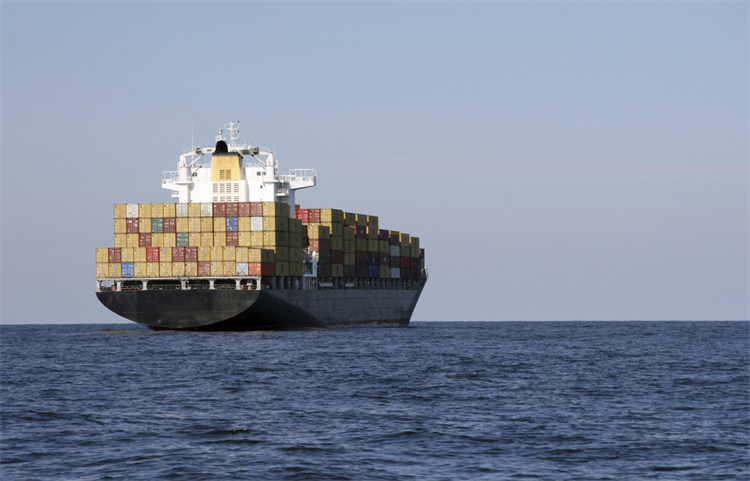Top Freight Management Options for 2024

Freight management plays a crucial role in the logistics industry in 2024. The logistics landscape continues to evolve rapidly due to technological advancements and market demands. Businesses must select the right freight management option to ensure efficiency and cost-effectiveness. Intermodal spot market pricing is expected to increase by 3.4% in 2025, highlighting the need for strategic planning. Companies that invest in advanced freight management solutions will gain a competitive edge. Effective freight management enhances shipping efficiency and optimizes transportation costs.
Understanding Freight Management
Definition and Scope
What is Freight Management?
Freight management involves the strategic planning and execution of transporting goods. This process ensures that shipments move efficiently from origin to destination. Companies use freight management to optimize routes, reduce costs, and improve delivery times. The integration of technology plays a significant role in modern freight management. Digital solutions streamline operations, making processes faster and more efficient.
Key Components of Freight Management
Several key components define freight management. Transportation management systems (TMS) help organize and optimize shipping routes. Real-time tracking tools provide visibility into shipment locations. Inventory management ensures that goods are available when needed. Cost control measures help manage expenses related to shipping. Efficient communication between stakeholders ensures smooth operations.
Importance in 2024
Trends Influencing Freight Management
Several trends influence freight management in 2024. Technology continues to drive innovation in this sector. Digital freight management leverages technology to streamline operations. This approach reduces time and resources by up to 90%. Sustainability becomes a priority as companies seek eco-friendly solutions. Green logistics practices gain popularity among businesses. The demand for real-time data and analytics increases. Companies use data to make informed decisions and improve efficiency.
Challenges and Opportunities
Freight management faces several challenges and opportunities in 2024. Rising fuel costs impact transportation expenses. Companies must find ways to mitigate these costs. Regulatory changes require businesses to adapt quickly. Compliance with new regulations becomes crucial. The need for skilled labor presents another challenge. Training and retaining talent become essential for success. Opportunities arise from technological advancements. Companies that invest in digital solutions gain a competitive edge. Enhanced efficiency and cost savings result from these investments.
Top Freight Management Options

Technology-Driven Solutions
Transportation Management Systems (TMS)
Transportation Management Systems (TMS) offer essential tools for optimizing transportation operations. Businesses utilize TMS platforms to plan routes and loads efficiently. These systems assist in selecting suitable carriers at a cost-effective rate. Companies can schedule shipments more effectively with TMS. Recent trends show that TMS vendors have enhanced logistics functionality. Acquisitions and partnerships have filled functionality gaps. Control tower functionality and geofencing features have been introduced. Generative AI capabilities now enhance TMS platforms.
Real-Time Tracking and Visibility Tools
Real-time tracking enhances overall supply chain efficiency.
Sustainable Freight Management
Green logistics practices
Green logistics practices focus on reducing environmental impact. Companies adopt eco-friendly methods to minimize carbon footprints. Sustainable practices include optimizing routes to reduce emissions. Businesses use energy-efficient vehicles for transportation. Packaging materials are chosen based on sustainability criteria. Green logistics contribute to corporate social responsibility goals. Companies gain a positive reputation by adopting these practices.
Eco-Friendly Transportation Modes
Eco-friendly transportation modes prioritize sustainability. Businesses use rail and sea transport to reduce emissions. Electric and hybrid vehicles are integrated into fleets. Companies explore alternative fuels to lower environmental impact. Eco-friendly modes align with global sustainability targets. Businesses benefit from reduced fuel costs and regulatory compliance. Adopting these modes enhances a company's green credentials.
Outsourcing and Third-Party Logistics (3PL)
Benefits of 3PL Services
Third-party logistics (3PL) services offer numerous advantages. Businesses outsource logistics functions to specialized providers. 3PL services provide access to advanced technology and expertise. Companies benefit from cost savings and improved efficiency. Outsourcing allows businesses to focus on core competencies. 3PL providers offer scalable solutions for growing businesses. Enhanced customer service results from professional logistics management.
Choosing the Right 3PL Partner
Selecting the right 3PL partner is crucial for success. Businesses evaluate potential partners based on experience and expertise. Compatibility with company values and goals is essential. Companies assess the technological capabilities of 3PL providers. A strong track record in logistics management is important. Businesses consider the geographic reach of potential partners. Effective communication and collaboration ensure a successful partnership.
Comparing Freight Management Options

Cost Considerations
Initial Investment vs. Long-Term Savings
Freight management options require careful financial analysis. Businesses must evaluate initial investments against potential long-term savings. Digital freight management solutions often demand higher upfront costs. These costs include software acquisition and IT infrastructure upgrades. However, digital solutions can reduce operational expenses significantly over time. Traditional methods may appear less costly initially. Yet, they often incur higher ongoing expenses due to inefficiencies. freight management options
Hidden Costs to Watch Out For
Hidden costs can impact the overall budget in freight management. Businesses should consider training expenses for personnel using digital systems. Upgrading technology can also lead to unforeseen costs. Maintenance and support fees may increase financial obligations. Traditional methods may involve manual errors leading to additional expenses. Companies must conduct thorough cost assessments to avoid surprises.
Scalability and Flexibility
Adapting to Business Growth
Scalability is crucial for growing businesses. Digital freight management solutions offer superior scalability. These systems accommodate increased volumes without significant changes. Traditional methods may struggle to adapt to rapid growth. Businesses benefit from flexible solutions that support expansion. efficient freight management ensures seamless operations during growth phases.
Customization Options
Customization enhances freight management effectiveness. Digital solutions provide extensive customization options. Businesses tailor systems to meet specific needs and preferences. Traditional methods offer limited customization capabilities. Companies gain competitive advantages through personalized solutions. Customization improves efficiency and customer satisfaction.
User Categories
Small Businesses
Small businesses face unique challenges in freight management. Limited resources necessitate cost-effective solutions. Digital tools offer affordable options for small enterprises. These tools streamline operations and improve efficiency. Small businesses benefit from scalable solutions that grow with them. Effective freight management supports business sustainability and competitiveness.
Large Enterprises
Large enterprises require robust freight management systems. Complex logistics demand advanced technological solutions. Digital platforms provide comprehensive features for large-scale operations. These platforms enhance coordination and visibility across supply chains. Large enterprises benefit from integrated systems that optimize processes. Efficient freight management contributes to operational excellence and profitability.
Selecting the right freight management option remains crucial for businesses seeking efficiency and cost-effectiveness. Companies must assess individual needs to align with the best solutions. Digital tools streamline operations, reducing time and resources by up to 90%. This proactive approach minimizes costly delays and enhances supply chain efficiency. Future trends will continue to emphasize technology integration and sustainability. Businesses that adapt will gain a competitive edge in the evolving logistics landscape.
See Also
Revealing Sea Cargo Trends: What's Next in 2024?
Best 5 Logistics Courses for 2024
Analyzing the Future of Less Than Truckload Shipping
